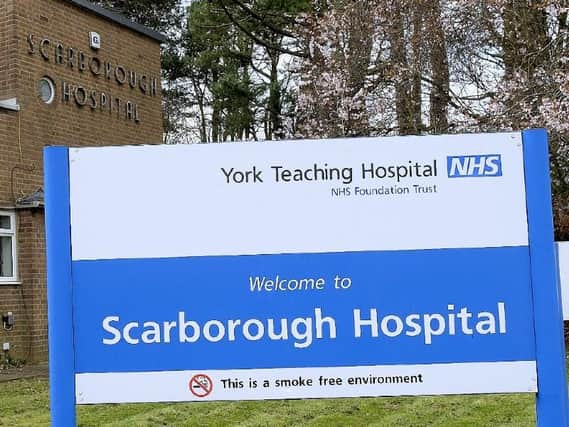North Yorkshire NHS patients voice dismay over “salami-slicing” of hospital services


North Yorkshire County Council’s scrutiny of health committee heard NHS North Yorkshire clinical commissioning group and York and Scarborough NHS Trust had agreed since May patients in need of hyper-acute services should be immediately taken to York, Hull or Middlesbrough, even if they were sitting in an emergency department elsewhere.
The meeting heard while hospital services in North Yorkshire had been disappearing for at least a decade, since June NHS bosses had introduced a system of “direct admissions” for hyper-acute service patients living in an areas including the North York Moors, Ryedale and Scarborough districts.
Advertisement
Hide AdAdvertisement
Hide AdThe change, which patients said had happened with no consultation, has meant ambulances with hyper-acute patients bypass hospitals such as Scarborough.
In a statement to the committee patient Catherine Blades said the change meant some North Yorkshire residents with stroke symptoms faced journey times of between 55 minutes and two hours to get to York Hospital, which she said was way outside the NICE guidelines for the treatment of strokes.
One patient said the NHS was offering “a top class service for that part of your brain that is left undamaged” after a lengthy journey to hospital.
Other patients told the committee of their “utter dismay” after being told no ambulance was available and that removing local hospital services while the Yorkshire Ambulance Service was struggling with demand left people living in health not-spots, and facing a lottery over how long it will take to get to hospital.
Advertisement
Hide AdAdvertisement
Hide AdAn elderly couple who live opposite Scarborough Hospital told the committee service changes had meant they had driven 1,000 miles to attend 13 appointments and that even a ten-minute hospital appointment could take up an entire day.
Dr Gordon Hayes told the committee how after seeking an urgent assessment over a torn retina a relative had spent five hours driving 160 miles to get him checked out.
The committee did not respond directly to several patients asking them to comment on whether they thought the NHS services being offered were reasonable, fair or equitable across the region.
However, Councillor Liz Colling said a study was needed to highlight the relative impact of the service changes to “unavoidably small hospitals”.
Advertisement
Hide AdAdvertisement
Hide AdThe committee’s chairman Councillor John Ennis said the committee had been examining hyper-acute services for some 18 months and in June had endorsed the adoption of direct admissions to specialists centres as the only viable option after looking at NICE guidance, transport data and how similar changes had been introduced at Harrogate Hospital.
In response to the patients’ concerns, an NHS spokesman said patients’ chances of good outcomes were best if they were taken straight to specialist centres that were well equipped and well staffed.
The spokesman told the committee was “not viable to provide out of hours and specialist care for every service” but added services such as opthamology had been developed.
The spokesman said the NHS recognised that having services centralised was difficult for patients and their families living in a large rural area, but it was increasing television and video appointments and offering help with transport for people who found travel costs prohibitively expensive.